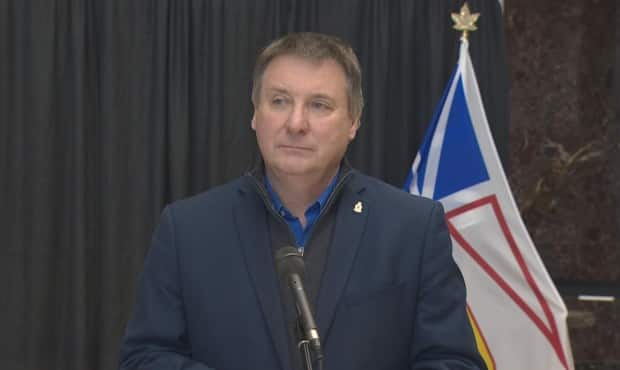N.L. launches same-day fly-in, fly-out service for cardiac patients


The government of Newfoundland and Labrador announced a pilot project Tuesday for patients to access cardiac catheterization procedures offered in St. John's via a same-day fly-in, fly-out service.
Patients will be assessed based on need, and those deemed suitable for air travel will be flown to St. John's and returned to their regional health-care facility the same day.
In a press release, the Department of Health and Community Services said the service will reduce the wait-list for the procedure in the province and free up beds. It also said there would be less expensive for those who have to travel to and stay in St. John's for the procedure.
Calling the project "Heart Force One," Premier Andrew Furey said, "It's not only better care, it's efficient care."
"This will allow patients and their families to know that they have a date for cardiac catheterization. They know that they will be returned to the same institution on the same day," he said.
He said the program is a creative solution to the challenges that face the province's health-care system.
Furey said it will also be a more cost-effective solution. "I will tell you sitting in an acute care bed costs anywhere from $700 to $1,000 a day," he said.
"Of course there's going to be an upfront cost, but I would argue that it's less than if we let the current system continue the way it is."
Daunting geography
Dr. Sean Connors, Eastern Health's clinical chief of cardiac care, said this type of patient travel is not something they have done before.
Newfoundland and Labrador has a great heart team and cutting-edge technology to bring the best care to cardiac patients, he said, but the province's geography is daunting.
"To see the patients, the looks on their faces, the nurses that come down with them and how they can see and find out what we actually do in this lab and to mix with our workers — to me it makes our province a whole lot smaller."
He also said the service offers continuity of care for the patient. The nurse looking after the patient will accompany them and see the procedure, he said, then escort the patient back to the facility they came from.
"So the team from another health authority merges with our team and then they'll go back," he said.
"We are small, here in this province. But we are smart and we are nimble."
Concerns with service
Opposition leader David Brazil said the service is a step in the right direction.

"It's great to see this government being proactive, finally, around health care and letting the health professionals find creative solutions to providing health interventions for people in Newfoundland and Labrador."
But Brazil said he has concerns about the logistics of the travel, and wonders whether the resources that would be used in air travel would be available to other patients who need it at a moment's notice, and whether the health professional, likely a nurse, travelling with the patient will be replaced in the facility where the patient is leaving from.
Interim NDP Leader Jim Dinn said he supports the service but has concerns about what the government is doing for other health-care issues. He said there are serious issues with the provincial medical transportation assistance program, with people unable either to access it or be compensated for it.
Dinn also asked what the government will do to address nurses leaving the system and the number of people in the province who still do not have a primary medical-care provider, and said he's concerned about what will happen regarding the provincewide ambulance system.

But in the long run, Dinn said, he supports the initiative.
Furey said the province is looking at expanding the program.
"There are other outpatient procedures where people are waiting in beds scattered across the province currently, today, that we could look at using a similar model or the exact same Heart Force One to transport them in, get their surgical procedure, their diagnostic text test their biopsy, whatever the procedure is and then repatriate them to their to their home institution," he said.
The Department of Health and Community Services said about 25 people have benefited from the pilot project to date, with 25 patients transported on three occasions.

 Yahoo Movies
Yahoo Movies 
